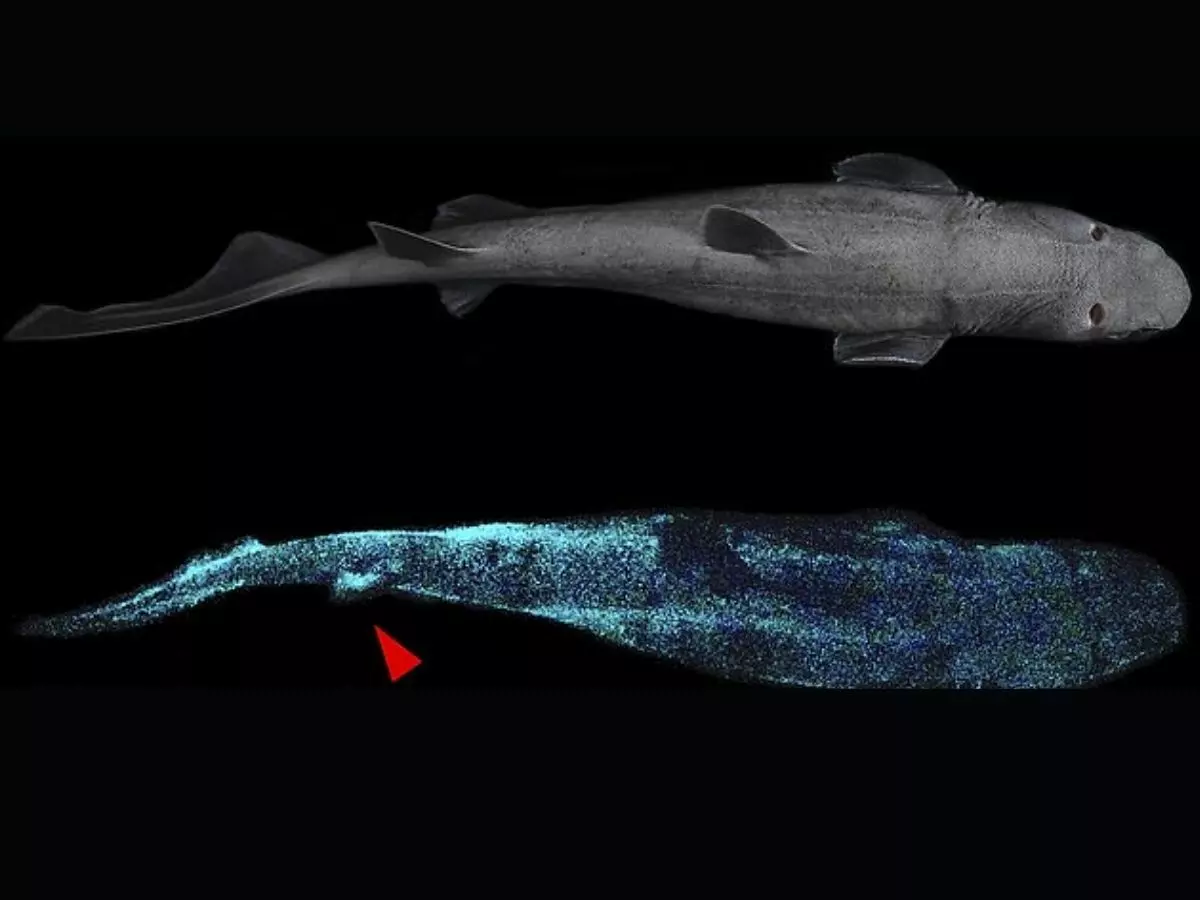World's Largest Glowing Shark Found, Which Lures Prey With Its Bioluminescence
The sharks were found at Chatham Rose -- an area of the ocean floor towards the east of New Zealand.

Our oceans are full of mysteries that are waiting to be uncovered, and researchers have discovered one such creature in the Eastern coast of New Zealand -- world's largest glowing shark which lures its prey with bioluminescent skin.
 Frontiers
Frontiers
Researchers have discovered a glowing shark for the very first time off the eastern coast of New Zealand, along with two other rare species of sharks -- a blackbelly lanternshark and southern lanternshark, both of which are bioluminescent.
According to the study published in Frontiers in Marine Science, Researchers from Belgium, New Zealand made this discovery in January 2020 and published their findings on February 26, 2021.
The sharks were found at Chatham Rose -- an area of the ocean floor towards the east of New Zealand. What¡¯s surprising is that researchers knew about these species of the shark before, however, they didn¡¯t know that these fishes were bioluminescent.
Bioluminescent, glowing shark species
In case you didn¡¯t know, bioluminescence makes fishes glow in the dark with a light that is generated through a chemical reaction in a fish that contains the luciferin molecule.
Researchers focussed on the kitefin shark as they were surprised to see large vertebrae possessing illuminating abilities. They discovered that even though it has a handful of predators, it also has one of the slowest cruising speeds, compared to other shark species, possessing ¡®high burst capability¡¯ according to researchers.
They also discovered that Kitefin sharks feed on smaller lantern sharks that are actually known to swim way faster. Researchers hypothesize that kitefin sharks use bioluminescence to attract prey on the ocean floor, allowing them to attack stealthily.
 Frontiers
Frontiers
Researchers state in their study, ¡°Bioluminescence has often been seen as a spectacular yet uncommon event at sea but considering the vastness of the deep sea and the occurrence of luminous organisms in this zone, it is now more and more obvious that producing light at depth must play an important role structuring the biggest ecosystem on our plane.¡±
The added, ¡°This first experimental study of three luminous shark species from New Zealand provides an insight into the diversity of shark bioluminescence and highlights the need for more research to help understand these unusual deep-sea inhabitants: the glowing sharks.¡±
